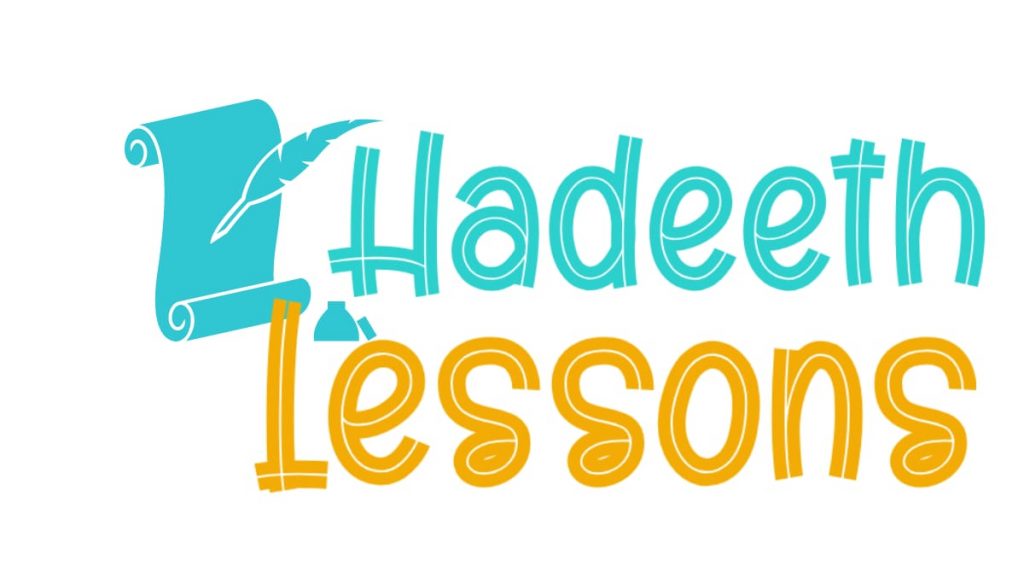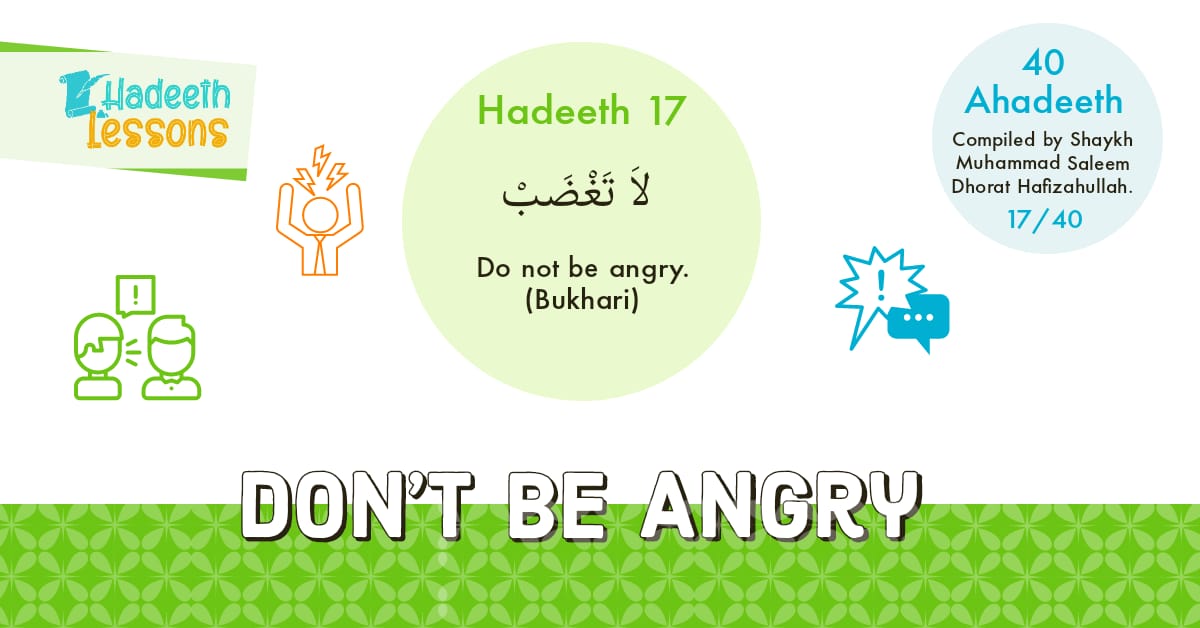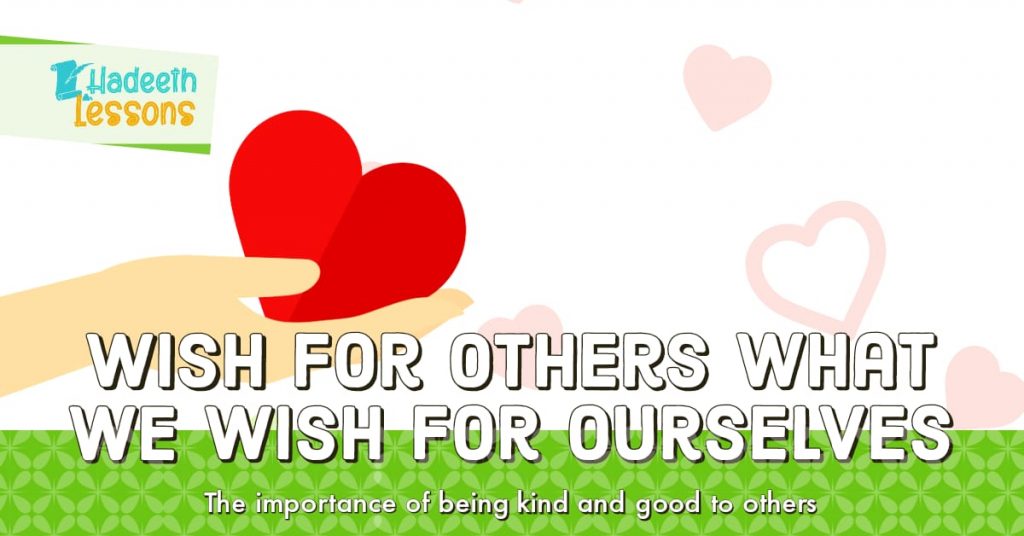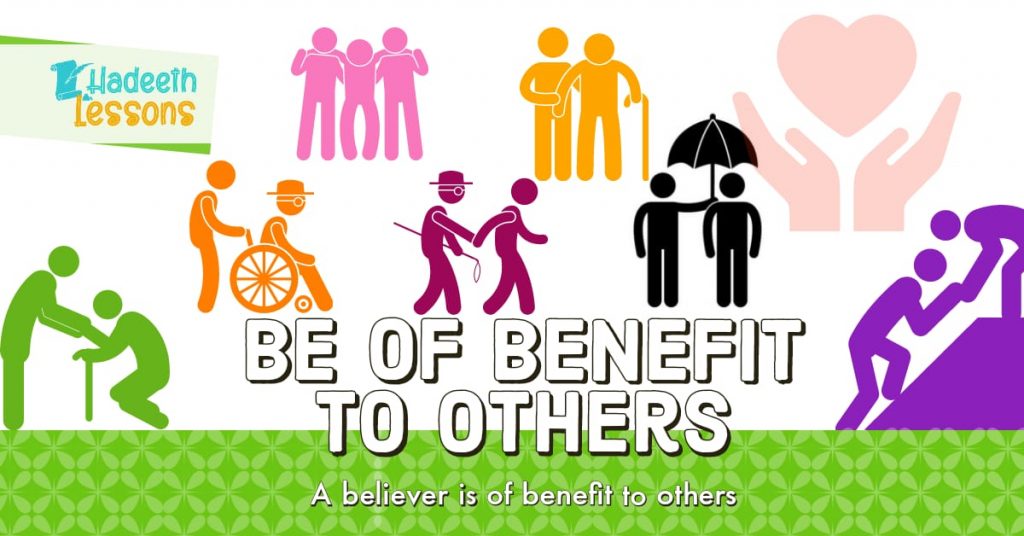
By Mawlana Junayd Makda Sahib
Memorise and practice a Hadeeth every week
from the collection of 40 Ahadeeth by Shaykhul Hadeeth Mawlana Muhammad Saleem Dhorat sahib Hafizahullah.
Hadeeth Seventeen
Do not be angry
لاَ تَغْضَبْ
Our Beloved Nabi ﷺ said,
“Do not be angry”
Bukhari
Explanation
Feeling angry is a normal emotion that everyone experiences. However, it’s essential to learn how to manage anger in a positive way so that it doesn’t harm ourselves or others. Our beloved Prophet ﷺ taught us the importance of not letting anger control us. This means we should make an effort to control our anger and treat others with kindness, even when we’re upset.
Example: Imagine someone accidentally spills something on your favourite shirt. You might feel angry and want to shout or be mean to them. Instead, take a deep breath and try to stay calm. Remember, it was an accident. You can calmly express how you feel and find a solution together, like cleaning the shirt or choosing another outfit.
Key Lessons from this Hadeeth:
1) Anger is a normal emotion that everyone experiences.
2) It’s important to control our anger and treat others with kindness.
3) Reacting impulsively in anger can cause harm to ourselves and others.
4) Allah is pleased when we show self-control and patience.
Action Plan:
Tips to manage anger:
1) Take deep breaths and count to three. This helps us calm down.
2) Engage in reflective thinking. Before reacting, take a moment to think about the potential outcomes of our actions and words.
3) Perform Wudhu (ablution) and/or drink water. Water has a soothing effect and, Insha’Allah, will help us calm down.
4) Follow the advice of our beloved Nabi ﷺ and change your posture. If you’re standing, sit down. This can aid in relaxation and calming yourself.
5) When feeling angry, remember that Shaytan (Satan) will try to manipulate us and take control of our emotions. Recite the Ta’awwudh (A’udhu billahi min ash-shaytanir rajeem) and seek Allah’s help and assistance.
6) Reflect on the Hadith (La Taghdab) and draw inspiration from the patience and forbearance of our beloved Nabi ﷺ.
Activity
1) Reflective Writing: Write about a time when you felt angry. Describe how you handled the situation and how you could have managed your anger better. Share what you learned from that experience.
2) Role-Play: Pair up with a friend or family member. Take turns acting out different scenarios that may trigger anger. Practice using the anger management techniques discussed in the lesson to find positive solutions.
By learning to control our anger, we show kindness to ourselves and others. Remember, our Prophet ﷺ taught us to manage anger, and it pleases Allah. Whether we’re young or old, practicing self-control and patience benefits everyone.










